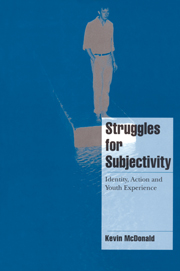PART II - Postmodern crisis: navigating the flow
Published online by Cambridge University Press: 05 December 2011
Summary
Cool selves, fluid societies?
In Westview we encounter, to use an expression of Wilson (1996), the ‘world of the new urban poor’. How we understand this social reality depends upon the wider social images that we are drawing upon. Bauman, as we have seen, defines the ‘new poor’ as ‘flawed consumers’. This is an important argument, to the extent that it represents social life as a market in which most of us participate, but from which some are excluded. This converges with a kind of postmodern analysis of society as a fluid market, and of a new mode of ‘cool self’. One of the most important proponents of this way of thinking about advanced societies is Lipovetsky (1994), who, like Bauman, places the idea of the ‘consumer’ at the centre of contemporary social patterns. But in doing so, he changes its meaning. For sociologists from Riesman to Bourdieu, the identity of the consumer had been a mechanism where society controlled the individual. When Riesman analysed the ‘lonely crowd’ in the 1940s, he viewed society as made up of status groups to which increasingly outerdirected individuals sought to conform. He finished his famous exploration of character and society by arguing that while individuals are created free, ‘they lose their social freedom and their individual autonomy in seeking to become like each other’ (Riesman 1950: 373). Bourdieu's Marxist account of the consumer society is also constructed in terms of status groups.
- Type
- Chapter
- Information
- Struggles for SubjectivityIdentity, Action and Youth Experience, pp. 117 - 124Publisher: Cambridge University PressPrint publication year: 1999



